Feminisms of Our Mothers
By: Daanika Kamal
-
Rs 1,270.75
- Rs 1,495.00
- 15%
-

You save Rs 224.25.
Due to constant currency fluctuation, prices are subject to change with or without notice.
What does feminism mean for Pakistani women? How do these meanings change, mould, detract and attract within and between generations? And how do we bridge the cracks that emerge through these varying formations? Through reflective conversations of the joys and conflicts of mother-daughter relationships, the contributions in Feminisms of Our Mothers bring forth individual experiences and interpretations of how feminisms are understood and navigated by Pakistani women, within the intergenerational context of a shared struggle.
Some of our mothers marched the streets in the 1980s, demanding the emancipation of women. Three decades later, they accompanied their daughters to Aurat March, reflecting on past formations, present collectives and feminist futures. Some of our mothers made concessions in their acceptance of traditional gender roles, forming conflictual relationships with daughters who pushed the boundaries of propriety. Some of our mothers may not refer to themselves as feminist, differing from their daughters about the significance and implications of labels. Yet, the subtleties of our mothers' adaptabilities are centered on women's empowerment. Situated amongst these subtleties are moments of consciousness and self-determination that we, as daughters, navigate through, as we limn the contours of our own feminist formations.
What does feminism mean for Pakistani women? How do these meanings change, mould, detract and attract within and between generations? And how do we bridge the cracks that emerge through these varying formations? Through reflective conversations of the joys and conflicts of mother-daughter relationships, the contributions in Feminisms of Our Mothers bring forth individual experiences and interpretations of how feminisms are understood and navigated by Pakistani women, within the intergenerational context of a shared struggle.
Some of our mothers marched the streets in the 1980s, demanding the emancipation of women. Three decades later, they accompanied their daughters to Aurat March, reflecting on past formations, present collectives and feminist futures. Some of our mothers made concessions in their acceptance of traditional gender roles, forming conflictual relationships with daughters who pushed the boundaries of propriety. Some of our mothers may not refer to themselves as feminist, differing from their daughters about the significance and implications of labels. Yet, the subtleties of our mothers' adaptabilities are centered on women's empowerment. Situated amongst these subtleties are moments of consciousness and self-determination that we, as daughters, navigate through, as we limn the contours of our own feminist formations.
Zubin Mehta: A Musical Journey (An Authorized Biography)
By: VOID - Bakhtiar K. Dadabhoy
Rs 840.00 Rs 1,050.00 Ex Tax :Rs 840.00
Remarkably Bright Creatures - The Charming, Witty, and Compulsively Readable BBC Radio Two Book Club Pick
By: Shelby Van Pelt
Rs 2,295.00 Ex Tax :Rs 2,295.00
Among the Eunuchs: A Muslim Transgender Journey
By: Leyla Jagiella
Rs 3,516.00 Rs 4,395.00 Ex Tax :Rs 3,516.00
In Search of Shiva: A Study of Folk Religious Practices in Pakistan
By: Haroon Khalid
Rs 795.00 Ex Tax :Rs 795.00
1971 A People’s History from Bangladesh, Pakistan and India
By: Anam Zakaria
Rs 1,495.00 Ex Tax :Rs 1,495.00
Char Darvesh Aur Aik Kachhwa / چار درویش اور ایک کچھوا
By: Syed Kashif Raza
Rs 595.00 Ex Tax :Rs 595.00
Myths Illusions and Peace: Finding a New Direction for America in the Middle East
By: Dennis Ross
Rs 1,095.00 Ex Tax :Rs 1,095.00
The Origins of Political Order From Prehuman Times to the French RevolutioN
By: Francis Fukuyama
Rs 4,495.00 Ex Tax :Rs 4,495.00
Manning Up: How the Rise of Women Has Turned Men into Boys
By: Kay Hymowitz
Rs 995.00 Ex Tax :Rs 995.00
The Obama Syndrome: Surrender At Home War Abroad
By: Tariq Ali
Rs 1,036.00 Rs 1,295.00 Ex Tax :Rs 1,036.00
The Quest For Meaning: Developing A Philosophy Of Pluralism
By: Tariq Ramadan
Rs 1,116.00 Rs 1,395.00 Ex Tax :Rs 1,116.00
Remarkably Bright Creatures - The Charming, Witty, and Compulsively Readable BBC Radio Two Book Club Pick
By: Shelby Van Pelt
Rs 2,295.00 Ex Tax :Rs 2,295.00
Among the Eunuchs: A Muslim Transgender Journey
By: Leyla Jagiella
Rs 3,516.00 Rs 4,395.00 Ex Tax :Rs 3,516.00
In Search of Shiva: A Study of Folk Religious Practices in Pakistan
By: Haroon Khalid
Rs 795.00 Ex Tax :Rs 795.00
1971 A People’s History from Bangladesh, Pakistan and India
By: Anam Zakaria
Rs 1,495.00 Ex Tax :Rs 1,495.00
Char Darvesh Aur Aik Kachhwa / چار درویش اور ایک کچھوا
By: Syed Kashif Raza
Rs 595.00 Ex Tax :Rs 595.00
No recently viewed books available at the moment.
Zubin Mehta: A Musical Journey (An Authorized Biography)
By: VOID - Bakhtiar K. Dadabhoy
Rs 840.00 Rs 1,050.00 Ex Tax :Rs 840.00
Remarkably Bright Creatures - The Charming, Witty, and Compulsively Readable BBC Radio Two Book Club Pick
By: Shelby Van Pelt
Rs 2,295.00 Ex Tax :Rs 2,295.00
Among the Eunuchs: A Muslim Transgender Journey
By: Leyla Jagiella
Rs 3,516.00 Rs 4,395.00 Ex Tax :Rs 3,516.00
In Search of Shiva: A Study of Folk Religious Practices in Pakistan
By: Haroon Khalid
Rs 795.00 Ex Tax :Rs 795.00
1971 A People’s History from Bangladesh, Pakistan and India
By: Anam Zakaria
Rs 1,495.00 Ex Tax :Rs 1,495.00
Char Darvesh Aur Aik Kachhwa / چار درویش اور ایک کچھوا
By: Syed Kashif Raza
Rs 595.00 Ex Tax :Rs 595.00












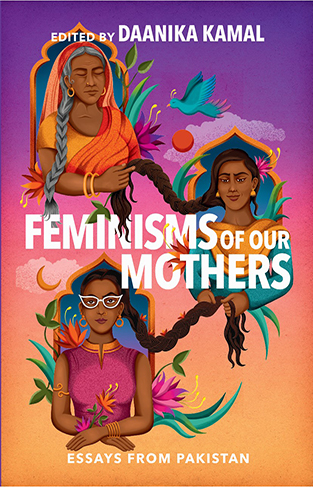
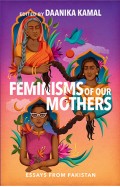
-120x187.jpg?q6)






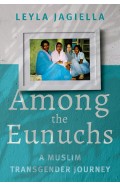


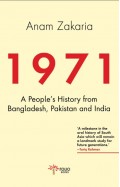
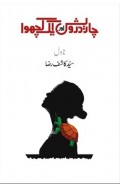

-120x187.jpg?q6)






